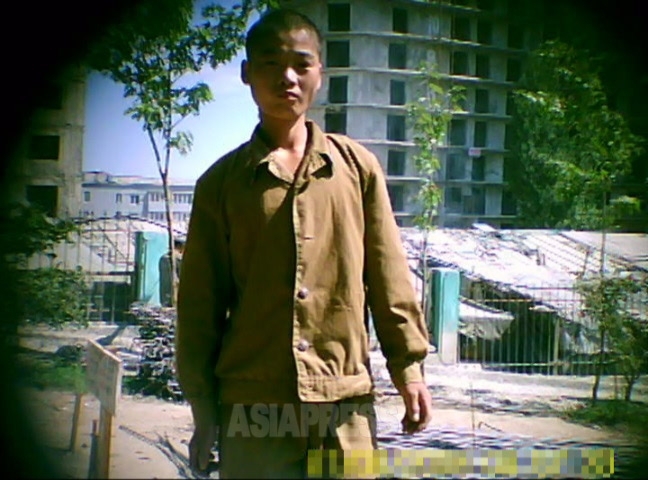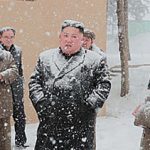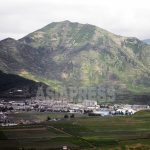
North Korea is strengthening its control over its citizens through their workplaces. Starting in mid-March, workplaces ranging from small enterprises to major mines have been forcing their workers to march while singing on their way to work. ASIAPRESS reporting partners in North Hamgyung Province and Yanggang Province provided details. (KANG Ji-won)
◆ Lining up at 7 AM to head to work
“Every morning, people are ordered to go to work in groups. At 7 AM, the only people in the streets are those lining up to go to work. Things have gotten to the point where people think it’s strange for those who are not working, like me, to [just] be walking [around],” the reporting partner in Yanggang Province said.
In short, workplaces are forcing their employees to line up every morning and go to work while singing, despite the fact they are not elementary students.
It may be strange, but the regime has occasionally done this when the state of affairs are tense or when the regime wants to strengthen social controls. What, then, is the Kim Jong-un regime looking to do?
ASIAPRESS received a similar report from a reporting partner in Musan County, North Hamgyung Province. Musan County has the country’s largest iron mine (with around 10,000 workers), and the reporting partner said that, starting in mid-March, people started to go to work every morning in groups while singing.
“There are several work sites in the Musan Mine, but the employers have created work commuting groups based on where people live with the work site work unit leaders responsible for each group. They explained that the reason for this is to prevent people from skipping work, deserting their workplaces, and eliminating out-of-work people. If even one person deserts the workplace, then the entire work unit has to take collective responsibility. They’re trying to divide up control over the labor force.”
In March, the start of the US-ROK joint military drills led the North Korean regime’s media outlets to claim repeatedly that the drills are “practice for war” while emphasizing the rise in tensions in the Korean Peninsula. Recent reports about people commuting to work in groups, however, appear aimed at simply strengthening control and management over the labor force.
◆ Managing people’s daily lives through workplaces
The reporting partner in Musan County gave ASIAPRESS further explanation about the role of workplaces in people’s lives:
“Over the past several years, all workplaces have been examining the lives of laborers to see whether they are involved in non-socialist or anti-socialist acts, crime, and the spread of groundless rumors. Now, they are even investigating the laborers’ personal time after they leave work. If there’s an issue that arises, the workplaces report this to the Workers’ Party, which then relays the issue to law enforcement or the prosecutors’ office.”
In the case of Musan Mine, the workplaces are monitoring the commutes of laborers to check to see if there are any people who skip work or desert their jobs so they can identify wanderers, jobless people, defectors, and criminals. And that’s not all.
◆ Investigating people’s families
“They are not only reporting about things related to work, but also issues in people’s personal and family lives to the Workers’ Party. A cadre said that the party has ordered that they need to investigate people’s family lives and even the sound of a pin dropping.”
The reporting structure began full-fledged operation in March. Group commutes to work is just one part of a larger change in how the regime watches its people.
※ ASIAPRESS communicates with reporting partners through Chinese cell phones smuggled into North Korea.
- <Inside N. Korea>Suddenly pulls out “Storm Corps” from the border region, perhaps as a response to US-ROK drills
- <Inside N. Korea>Food sales banned in markets, leading to anxiety and concern while deepening the poverty suffered by the poor
- <Inside N. Korea>Poverty-stricken urban dwellers raid farming villages in search of food…the police are on emergency alert to deal with the rise in robberies
- <Inside N. Korea>Gasoline and diesel prices in North Korea have increased by at least two-fold in the past year. Why are prices increasing in North Korea when they are falling in other countries?
- How should we view Kim Jong-un’s daughter? The regime is looking to perpetuate the country’s one-family rule into a fourth succession ISHIMARU Jiro

























